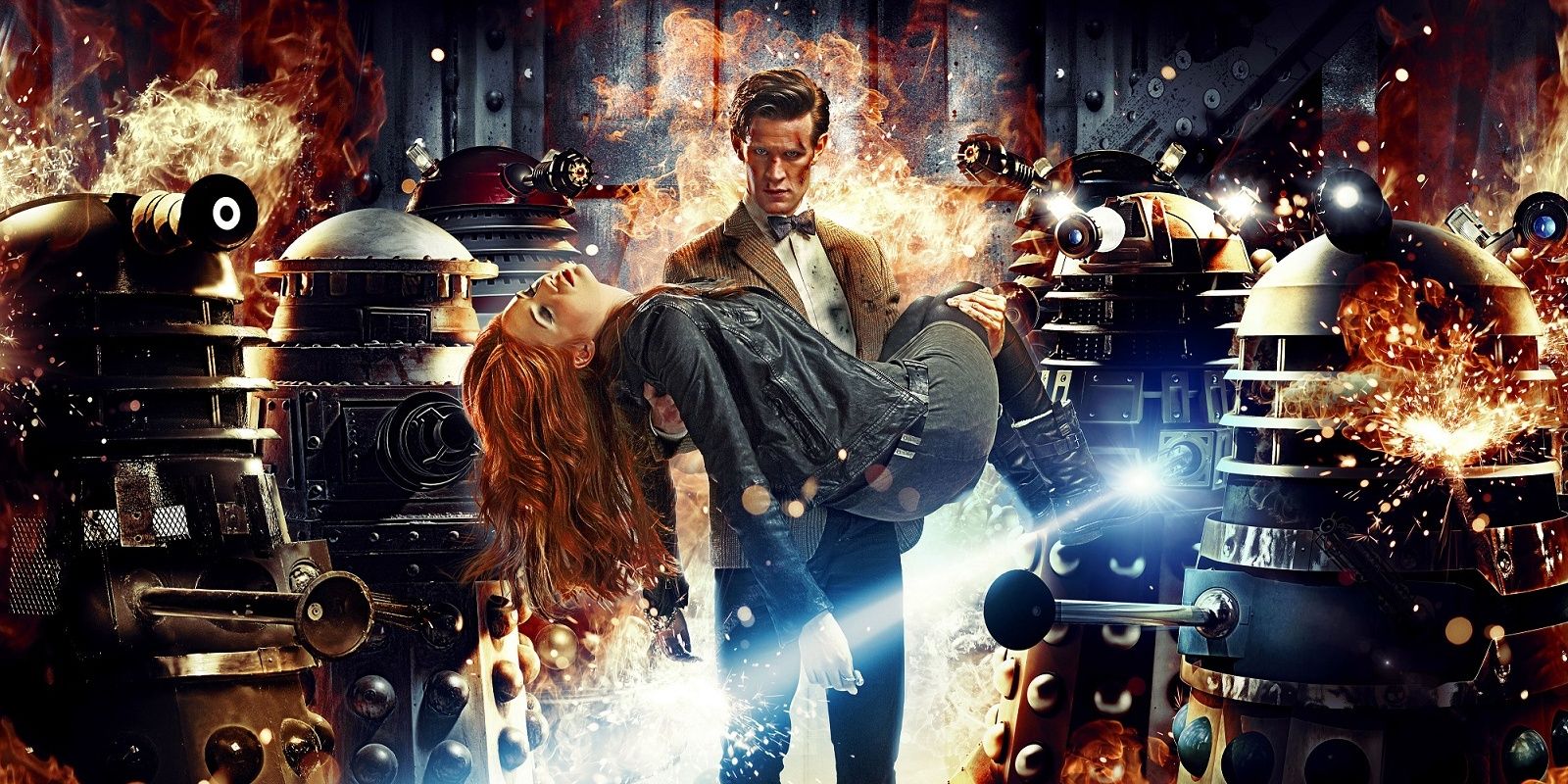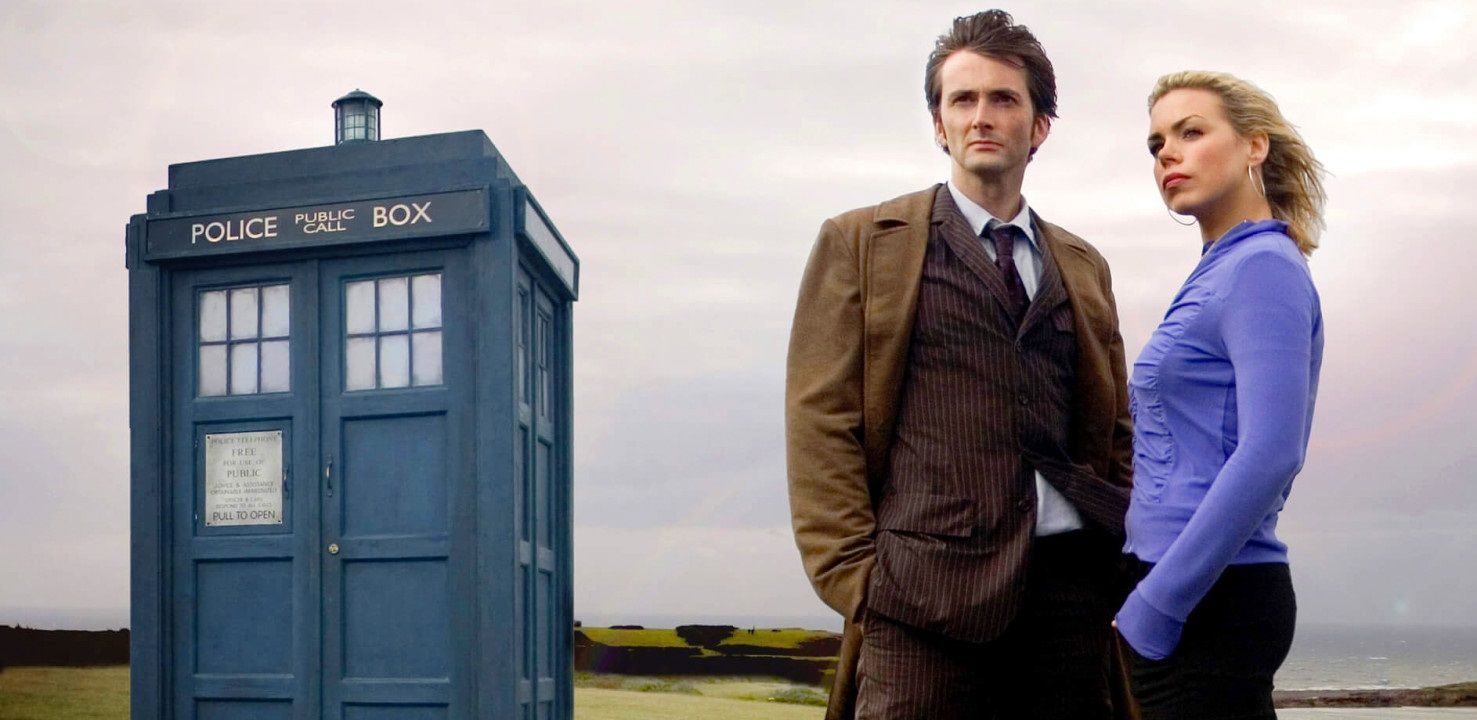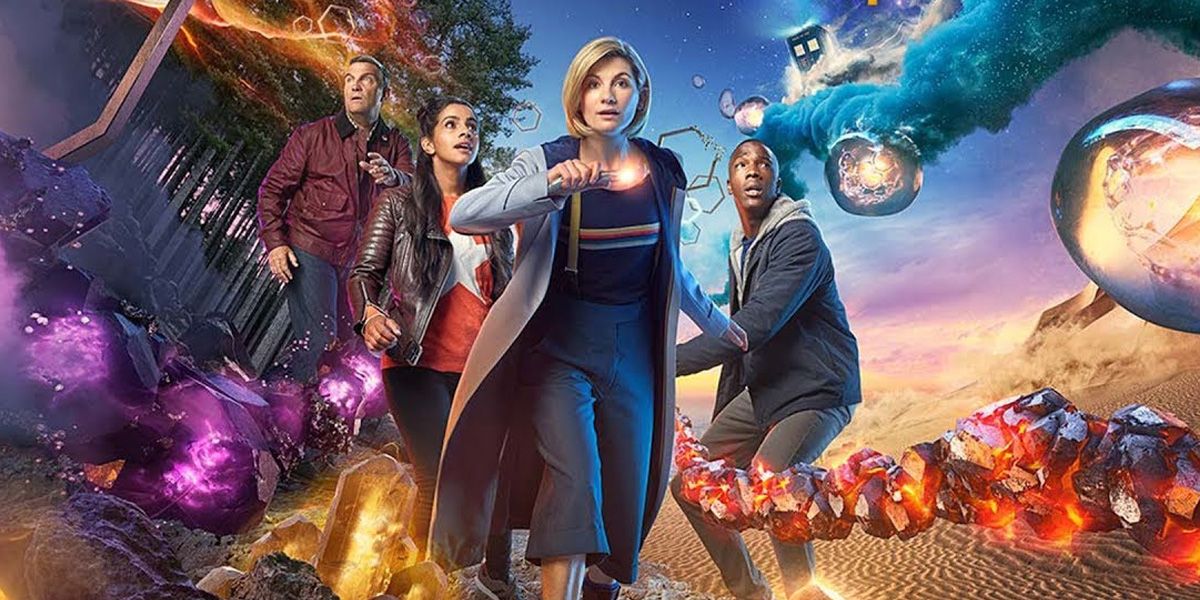Doctor Who reached the conclusion of its twelfth season earlier this year. From the season premiere onward, the series offered massive developments one after the other, from the return of the Master to the introduction of an all-new Doctor and the revelation that the Doctor was not who she believed she was. With ten episodes, Season 12 of Doctor Who was one that fans simply couldn’t afford to miss, and easily one of the most important in the BBC series’ entire 57-year history.
Now, with Season 12 concluded, the series is celebrating the 15-year anniversary of its modern relaunch. With this special occasion taking place this March, let's take a look back at Doctor Who, and how the series evolved from quirky sci-fi romp to can’t miss television.
When Doctor Who returned for a new season 15 years ago, it was under the guidance of new showrunner Russell T. Davies. Davies gave a modern spin on the classic series that kept the spirit of the original alive. This modern twist helped make the series more relevant and engaging for audiences. The series had more action, more running, more jokes and more attachments, but there were still just as many goofy aliens and monsters lurking in the dark. Throughout its first few seasons, Davies kept the quirks that made Doctor Who a British delight, with all the homegrown ingredients that kept it somewhat of a niche genre show.
But all of that changed with Season 5, which featured the debut of Matt Smith’s Eleventh Doctor, and saw Steven Moffat assume the responsibility of new showrunner. Moffat kept the formula of the series alive, but with a whole new twist. He used this new beginning to bring a different quality to the show and suddenly, it was told more like a dark fairytale -- which worked in its favor. Combined with the young and effervescent performance of Smith as the titular Time Lord, the series now had the perfect jumping-on point for a new audience.
What’s more, with Season 5, Doctor Who became a much more cinematic show. The effects got better, the action got bigger and the stories got bolder. The series grew more popular, and it just kept on going with Season 6, which took the action to America. This also helped Doctor Who reach the audience it had found in the United States, and signaled it was bigger than ever. With Matt Smith in the title role, the stars started appearing in more talk shows, news about the series became breaking and there was general excitement about whichever episode would come next. It got to a point that, when the series reached its 50-year anniversary, certain episodes would even receive limited theatrical releases.
After this, the casting of a new companion or a new Doctor became highly anticipated announcements, from Peter Capaldi to Jodie Whittaker. Sure, the series may not be at the height of popularity it had a few years ago, but it is still a television event for countless fans. The unveiling of the first female Doctor generated buzz like never before, and Season 12 upended the very foundations of the show. It’s been 15 years, and the series has reinvented itself many times over, but now is still the best time to be a Doctor Who fan.
Doctor Who stars Jodie Whittaker as the 13th iteration of the titular Time Lord. Whittaker is joined by co-stars Bradley Walsh, Tosin Cole and Mandip Gill in a series spearheaded by showrunner Chris Chibnall. The next episode, "Revolution of the Daleks," will air this holiday season. The new season and all previous 11 seasons will stream on HBO Max later this year.



